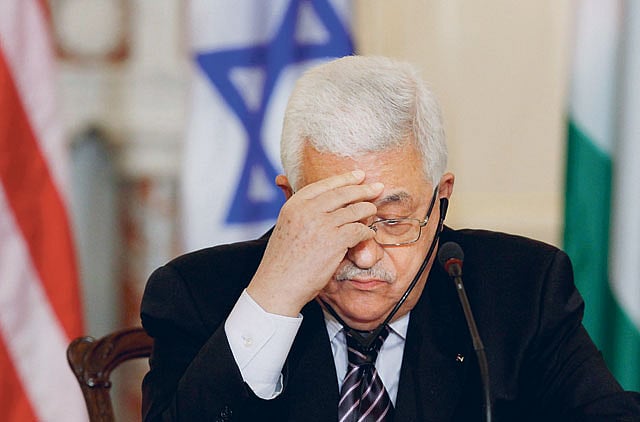Washington: When Israeli-Palestinian peace talks move beyond Thursday's summit in Washington, Palestinian leader Mahmoud Abbas will face a tough balancing act as even his allies at home push back against US and Israeli pressures.
Abbas and Israeli Prime Minister Benjamin Netanyahu agreed on Thursday to meet again in two weeks, most likely in Egypt, and set up a framework for reaching a deal within a year.
Abbas, who in recent weeks has spoken of being under unbearable pressure, and his colleagues in the Palestine Liberation Organisation (PLO) know that they have little alternative to going along with the United States and its Arab allies.
After all, Abbas has staked his tenure on a negotiated peace with Israel, opposed a violent uprising, and allied himself with the West.
"Abbas has been frank and truthful… He never said he had two options," says Mohannad Abdul Hamed, a political commentator for the Al Ayyam newspaper. "The balance of power in Palestine has always been in favour of the majority rule — which is Fatah."
But scepticism toward Israeli-Palestinian negotiations is so widespread among Palestinians that even peace proponents in Abbas's own Fatah party and the umbrella PLO oppose the talks.
Despite such reservations — fueled in part by doubts that Netanyahu means business — Abbas won a half-hearted blessing from enough political backers to start the talks.
Those allies have been convinced that it's not in the Palestinians' interest to defy an international community that is pushing for talks and allow Israel to portray themselves as obstructionists.
It's unclear, however, when that line of credit will run out.
Sign up for the Daily Briefing
Get the latest news and updates straight to your inbox
Network Links
GN StoreDownload our app
© Al Nisr Publishing LLC 2026. All rights reserved.
